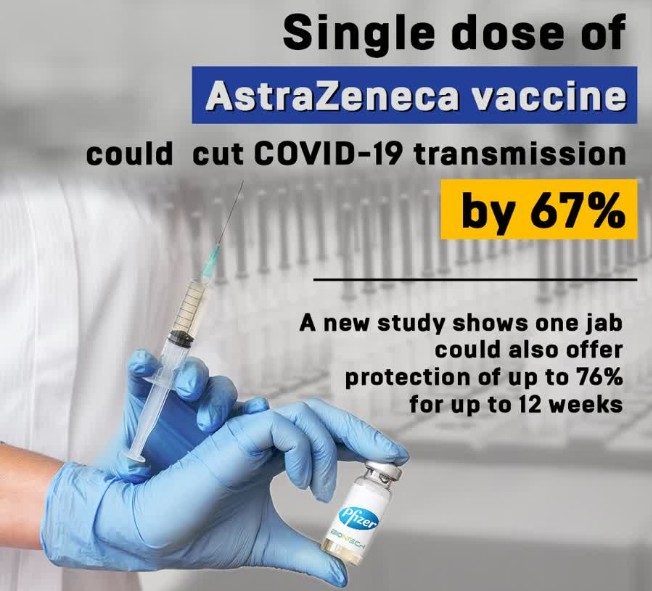
One dose of the Oxford/AstraZeneca vaccine provides sustained protection against COVID-19 for at least three months and cuts transmission of the virus by two-thirds, according to research.
Analysis of fresh data from three trials found that the first shot conferred on average 76% protection against symptomatic infections from three weeks until 90 days, and reduced transmission of the disease by 67%.
The findings are preliminary, and still under review at The Lancet, but if they stand up to scientific scrutiny would reassure public health officials that prioritizing more vulnerable people for a first shot of the Oxford/AstraZeneca vaccine is a sound strategy.
While people were originally due to be given two shots of coronavirus vaccines three or four weeks apart, in December the Joint Committee on Vaccination and Immunization (JCVI), which advises ministers, recommended delaying second doses so more vulnerable people could receive a first shot.
Less is known about the impact of spacing out two shots of the Pfizer vaccine.
The latest data on the Oxford/AstraZeneca vaccine, drawn from clinical trials in the UK, Brazil and South Africa conducted up until 7 December, show that it may be more effective if the second shot is delayed.
Researchers running the trial recorded no evidence for the 76% level of protection waning between three weeks and three months after the first dose. Delaying the second shot for at least three months boosted protection to an average of 82%, they concluded, compared with 62% in the interim trial when volunteers had their shots four weeks apart.
The paper suggests vaccine efficacy rose from about 55% when the booster was given no more than six weeks after the first shot, to 82.4% when given more than three months later. (NNT)





